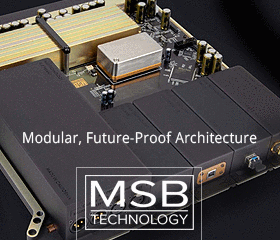Also being just a tubed dac like AN is not what the Big 7 and the GG are - the Big 6 and below were tube dacs - the Big 7 above are DHT, which lets you put the best tubes in audio at the top of the electronics chain. Right now Lukasz is in Czech republic talking to Eunice Kron. He has started selling at great prices KR tubes and specially made for Lampi tubes from EML. Won't be surprised if KR starts designing special tubes for him.
I have no experience at all with Lampizator, but this excessive dependence on tube quality and reported large variance of sound quality on the type of tubes worries me. Do you know what is the "official" factory approved tube?
BTW, the reasons why NOS tubes such as Telefunken are reported to sound better were studied and are well known - better mechanical quality resulting in lower and better controlled microphonics, better surfaces and more accurate building results in lower noise and distortion. But here we seem to be addressing just different tube flavors.












